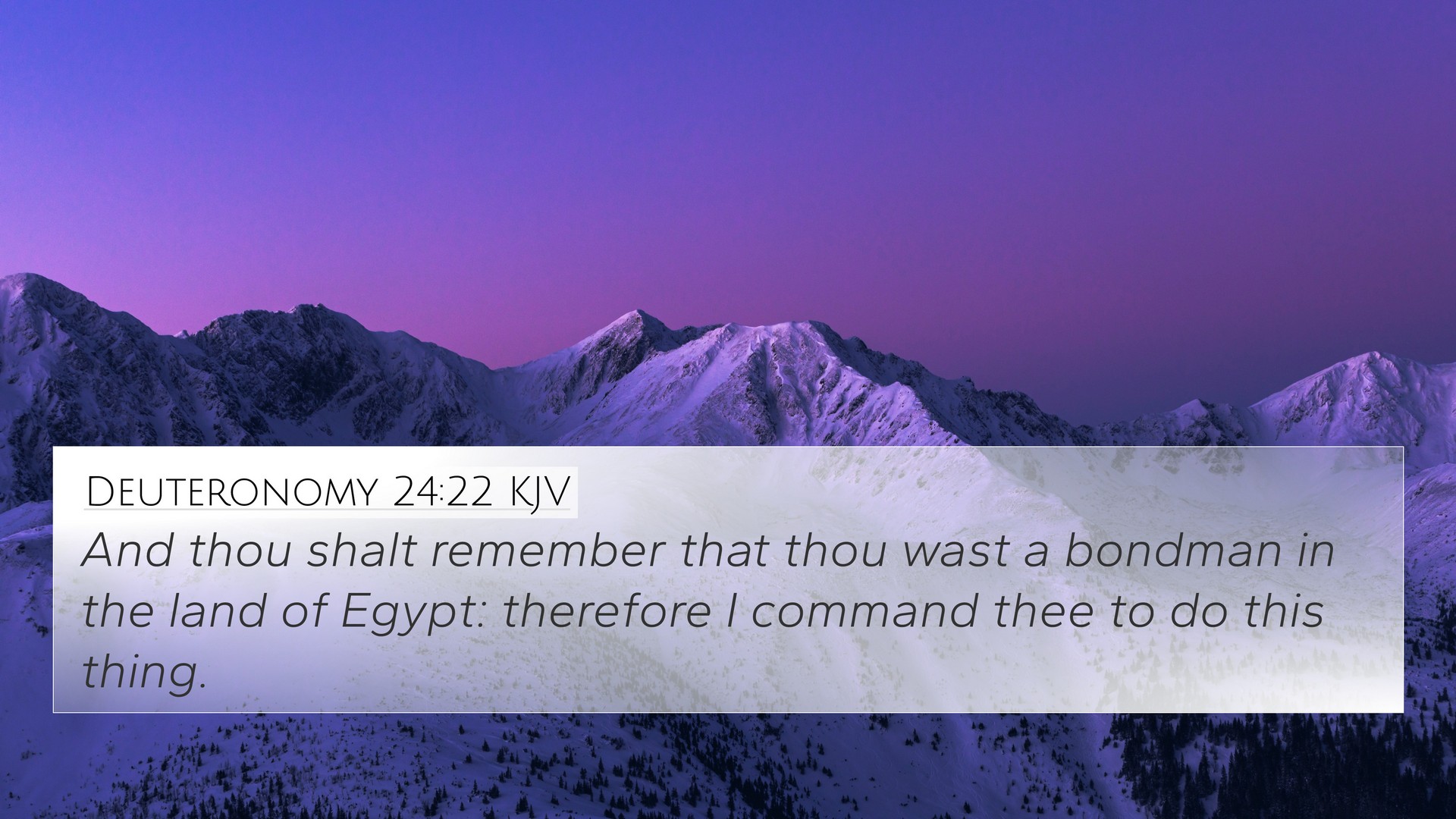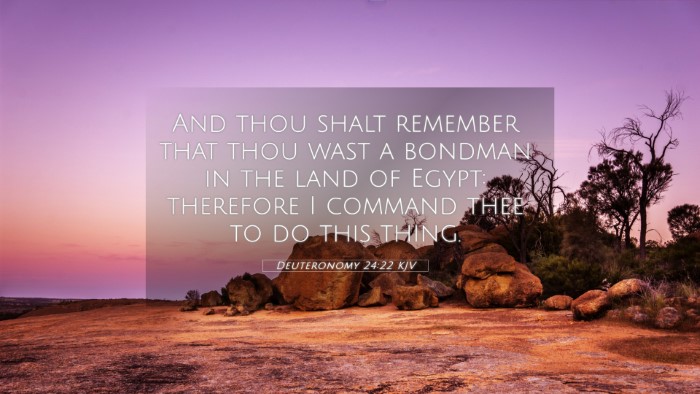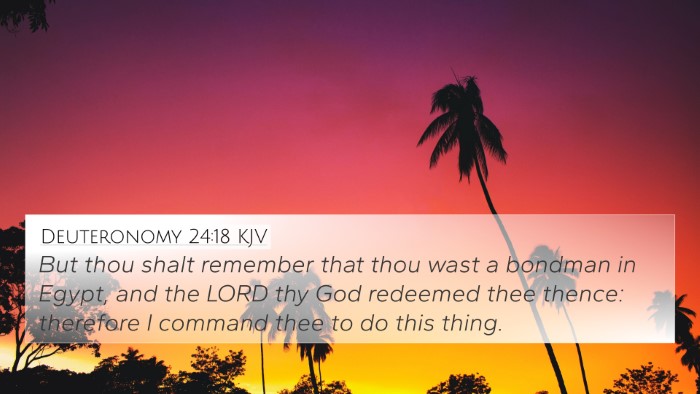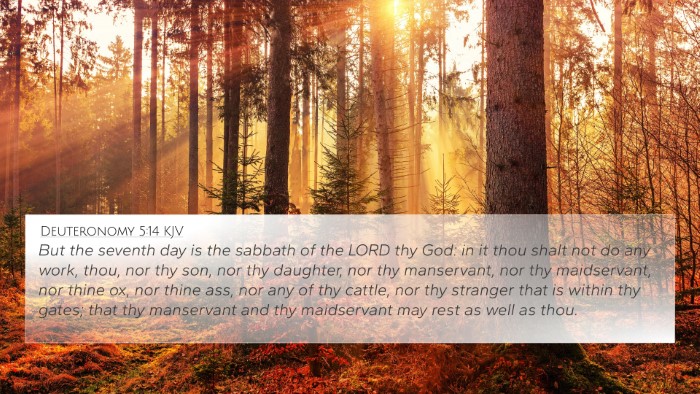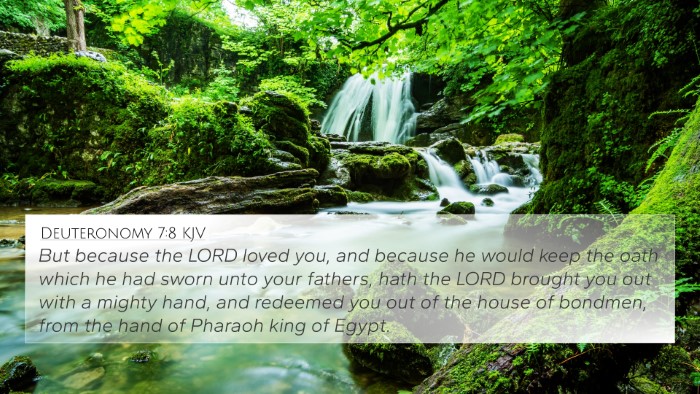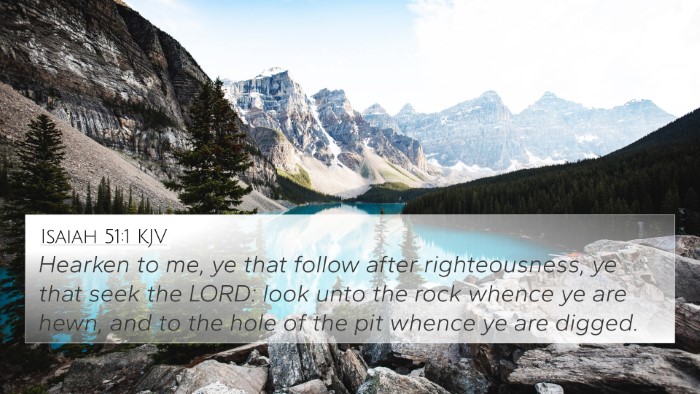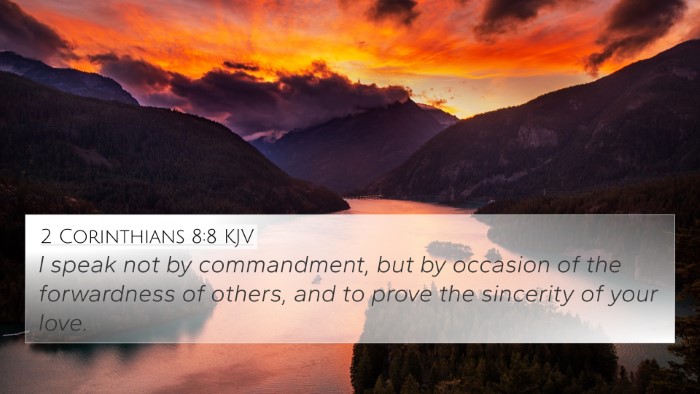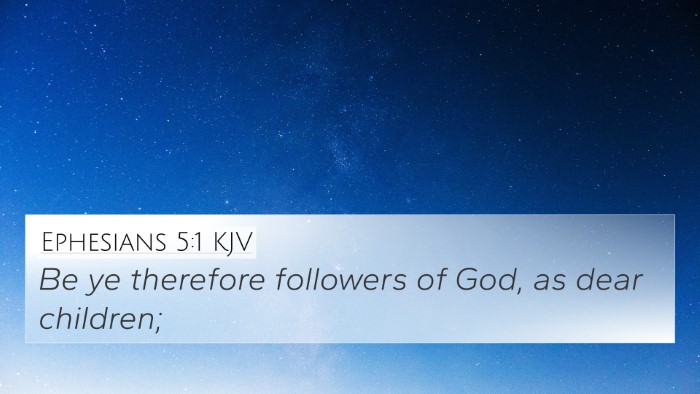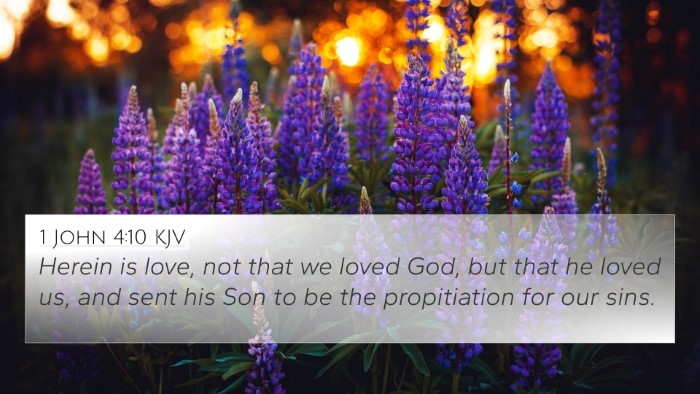Understanding Deuteronomy 24:22
Deuteronomy 24:22 states:
"And you shall remember that you were a slave in the land of Egypt; therefore I command you to keep this statute."
Summary of Meaning
This verse serves as a poignant reminder of the Israelites’ history and their experiences of oppression. It emphasizes the importance of empathy and compassion towards others who suffer, particularly those who are vulnerable.
Commentary Insights
Matthew Henry explains that this statute commands remembrance of their former slavery in Egypt, urging them not to forget their struggles and the mercy they received from God. It reinforces the principle that we ought to extend kindness and justice to others, particularly the marginalized.
Albert Barnes highlights that the significance of remembrance is profound; it connects their past with their present ethical obligations. He notes that this commandment is not merely historical but forms the basis for social justice practices and responsibilities among the community.
Adam Clarke remarks that the act of remembering is integral to their identity and moral compass. He points out that this verse ties into the broader theme of seeking justice and creating an equitable society based on shared experiences of suffering.
Cross-References for Deuteronomy 24:22
Here are 8 related Bible verses that align with the themes present in Deuteronomy 24:22:
- Exodus 22:21 - "You shall not wrong a stranger or oppress him, for you were strangers in the land of Egypt." This verse reinforces the call for compassion toward the outsider.
- Leviticus 19:34 - "You shall treat the stranger who sojourns with you as the native among you..." This encourages the same behavior of kindness towards others as one would wish for themselves.
- Deuteronomy 10:19 - "Love the sojourner, therefore, for you were sojourners in the land of Egypt." This reiterates the importance of empathy based on shared experiences.
- Matthew 25:40 - "And the King will answer them, 'Truly, I say to you, as you did it to one of the least of these my brothers, you did it to me.'" This New Testament reflection connects Jesus’ teachings back to the Old Testament ethos of caring for the needy.
- Luke 6:31 - "And as you wish that others would do to you, do so to them." This teaching encapsulates the principle of reciprocity in human relationships.
- James 1:27 - "Religion that is pure and undefiled before God, the Father, is this: to visit orphans and widows in their affliction..." Focuses on care for the vulnerable in society.
- Proverbs 31:8-9 - "Open your mouth for the mute, for the rights of all who are destitute." This emphasizes advocacy for those who cannot advocate for themselves.
- Isaiah 58:6-7 - "Is not this the fast that I choose: to loose the bonds of wickedness...?" Highlights the essential act of providing for the oppressed and the needy, reminiscent of the call in Deuteronomy.
Applications of the Verse
The command to remember one's past, especially experiences of enslavement and oppression, holds critical contemporary implications:
- Empathy in Actions: Recall how far one has come, prompting active compassion towards others facing struggles.
- Social Justice: Encouraging advocacy for justice and protection for the marginalized in society.
- Community Building: Establishing a community that values unity, equity, and shared responsibility.
Thematic Connections and Reflection
Deuteronomy 24:22 fosters thematic connections across the Bible. It encourages a view of social obligations stemming from a shared history. This verse acts as a bridge to understand:
- Human Rights: Biblical principles of justice that shape today's understanding of human rights.
- Community Ethics: Ways in which communities can foster support and protection for their most vulnerable members.
- Spiritual Growth: The necessity of remembering and reflecting on God’s deliverance and its implications for personal character.
Conclusion
In summary, Deuteronomy 24:22 calls believers to a deep and abiding remembrance of their past, urging them to extend mercy and justice to others. By cross-referencing this verse with others, one can see a rich tapestry of biblical exhortations that promote love, justice, and empathy within the community. These connections guide modern readers toward a practical application of these timeless principles in fostering a society that honors the struggles of the past while working towards justice and equity for all.
